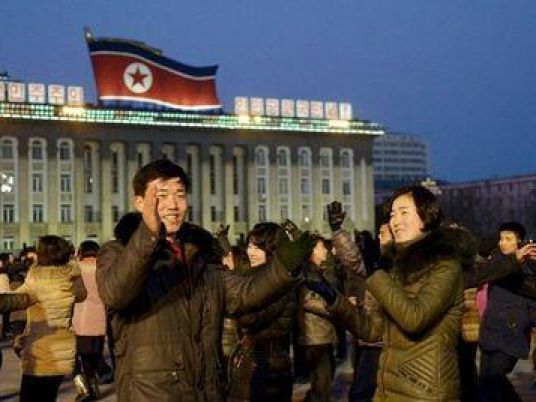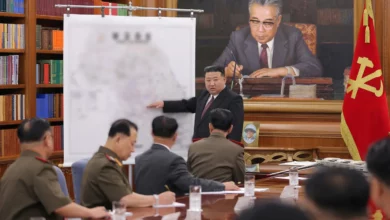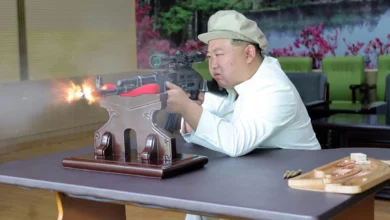
Oh Hyun-min was in middle school when North Korea conducted its third nuclear test in February 2013. He remembers feeling elated to hear the news that his country had successfully tested such a "big weapon", he told Reuters.
"In that society, I was happy and felt like we had become more militarily powerful," said Oh, who is now 18 and fled to South Korea in July 2013, five months after the test.
Behind the theater put on by the North Korean state, news of a nuclear test brings mixed feelings of pride and indifference for ordinary North Koreans.
After its fourth nuclear test last week, which North Korea says was a hydrogen bomb, state media showed jubilant people shouting slogans praising leader Kim Jong Un on the streets of the capital, Pyongyang.
North Korean state media has shown images of what appeared to be state-organized rallies after each nuclear test, the first of which was in 2006.
The celebrations after last week's test featured fireworks, a mass rally and a choreographed dance.
"Regardless of how bad Kim Jong Un is, people didn't find having nuclear weapons bad because we thought it made us stronger," Oh said.
"It made some people see Kim Jong Un as young and energetic, taking initiative."
'Ambivalence, cynicism'
But a relentless struggle to survive in impoverished North Korea has meant many people have been too preoccupied to pay too much attention to news of bombs.
"Back then I was too busy smuggling in order to make money and eat so I wasn't interested in that kind of thing," said Kim Dan-bi, a North Korean defector who left in 2011 and now lives in South Korea, referring to earlier nuclear tests.
Kim was engaged in illicit trade across the China border when she was in North Korea. Her family members are still there.
"I think it was the same for people around me who were also too busy worrying about their next meal to care about whether or not there had been a nuclear test," she said.
At the same time, the propaganda punch of the nuclear tests holds for many ordinary North Koreans has diminished each time as they begin to realize the pursuit of the weapons means more economic suffering, said Sokeel Park of the Liberty in North Korea (LiNK) organization, which works with defectors.
"Amongst people in cities that have more access to foreign information and are the most switched on, there is likely more ambivalence or even cynicism over the use of precious resources for things that bring no tangible benefit to the people and cause worsening relations with the outside world," said Park.
That is especially true among the many North Koreans who have turned to private trade to survive after famine in the 1990s ended government hand-outs and crippled a state rationing system, laying the foundation for a now-thriving gray-market economy.
Oh, who lives on the outskirts of the South Korean capital, Seoul, said information trickling in to North Korea will slowly challenge the image of nuclear weapons as a source of national pride.
"It won't make any quick or big change in one day but the way North Koreans see nuclear weapons will change," he said.
"People know enough about making nuclear bombs to know it means there'll be less rice."




